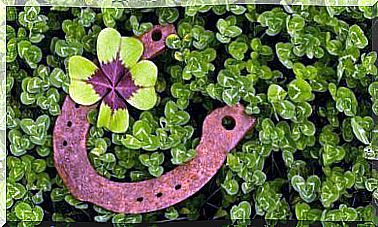Your Brain Also “purifies ” What Is Not Useful And What Is Too Much …
Unlearn in order to learn, eliminate what we don’t need to leave space for what is useful and important. Our brain, as curious as it sounds, undertakes delicate recycling tasks when we sleep or meditate to purify ourselves, remove the “weeds”, and allow stronger neural connections, useful and valuable thoughts and learning. to bloom.
Arthur Conan Doyle showed us in “A Study in Red” how John Watson at one point marveled at something about his new and extravagant roommate. Sherlock Holmes did not know that the Earth revolved around the Sun. The famous expert sleuth gave him excellent reasoning as to why he ignored this and a series of data which, for the most part, was obvious.
A person’s brain – explained Holmes – is like a small empty attic in which you put your favorite furniture. Foolish people accumulate in this space a whole series of disparate objects which they find within easy reach. Little by little, there is no more space for useful knowledge. However, the intelligent craftsman is very careful about what he puts in the attic of his brain: he only admits the tools that can help him to carry out his work.
Almost without realizing it, Conan Doyle showed us in this little introduction to A Study in Red a basic premise on this inner economy or garden center where the brain decides which synaptic connections it wants to nurture and which it wants to destroy. It does so based on lifestyle, interests, experiences and learning.
Neurologists, on the other hand, say metaphorically that we have a “delete” button that allows us to save space, eliminate what is not useful in order to build new and stronger connections through which we consolidates more meaningful learning. This is a process in which, curious as it may seem, one can also intervene. We explain how.
In the brain, learning also involves “destroying”
Many of us believe that the more synaptic connections we have in the brain, the better. We tell ourselves that this is how we consolidate more learning, more skills, skills, data, knowledge … However, Sherlock Holmes theory is always right in this case: the brain is not an empty attic in which you have to accumulate disjointed or hazardous things, and massively.
The brain is a sophisticated organ that likes to save and specialize in abilities in accordance with its owner. Let’s take an example: we have decided to learn to play the piano, we like it a lot and we do a one hour lesson per week. In this case, the impact on our brain will be minimal. However, if we take it seriously, and start practicing it on a daily basis, amazing things will appear.
One of them is “synaptic pruning,” that is, in order to create new synapses and new circuits in this musical learning, the brain will first remove old neural connections that don’t. are not useful. It needs space and also to build new roads, new bridges and untangle cables so that new energy “flows”.
To better understand, we can imagine our brain as a garden. Instead of flowers, what grows are the synaptic connections between neurons, the pathways through which neurotransmitters like dopamine or serotonin pass. Now, in order for these new structures to flourish, we must first remove the “weeds”, raking and removing the old leaves to make space. This task is carried out by “microglial cells”, magical entities to which we owe our ability to consolidate new learning. That’s wonderful.
Sleep or meditate, two strategies for your brain to eliminate what is not useful
We know that our ability to learn often transcends our own biology. You surely know, moreover, that for this new knowledge to consolidate well, we need to sleep. Neurologists often say that a sleep deprived brain is like a wild jungle in which it is impossible to move forward: chaotic, dark, suffocating and blocked by brush.
In order to open paths, clear the ground and obtain free space, we need deep and restorative rest. This is when the glymphatic system comes into action: it is the one that performs this laborious task of eliminating waste substances, residues and all the dead cells generated by synaptic pruning. On the other hand, you should know that a 15 minute nap in the middle of the day or 20 minutes of deep meditation are also excellent to leave space for new neural connections.
So, and to conclude with an important thing, neuropsychologists remind us that sometimes the simple fact of ceasing to focus our attention on a particular aspect or of “breaking” the cycle of obsessive thoughts which focus on the same subject or the same one. no one is also allowing us to “deactivate” this synapse and take its strength away from it. It is like pressing the “delete” button, thus making the attic of our brain a place more comfortable, spacious and more in tune with our needs.
A subject without a doubt fascinating that it is very interesting to explore.
Also read:








